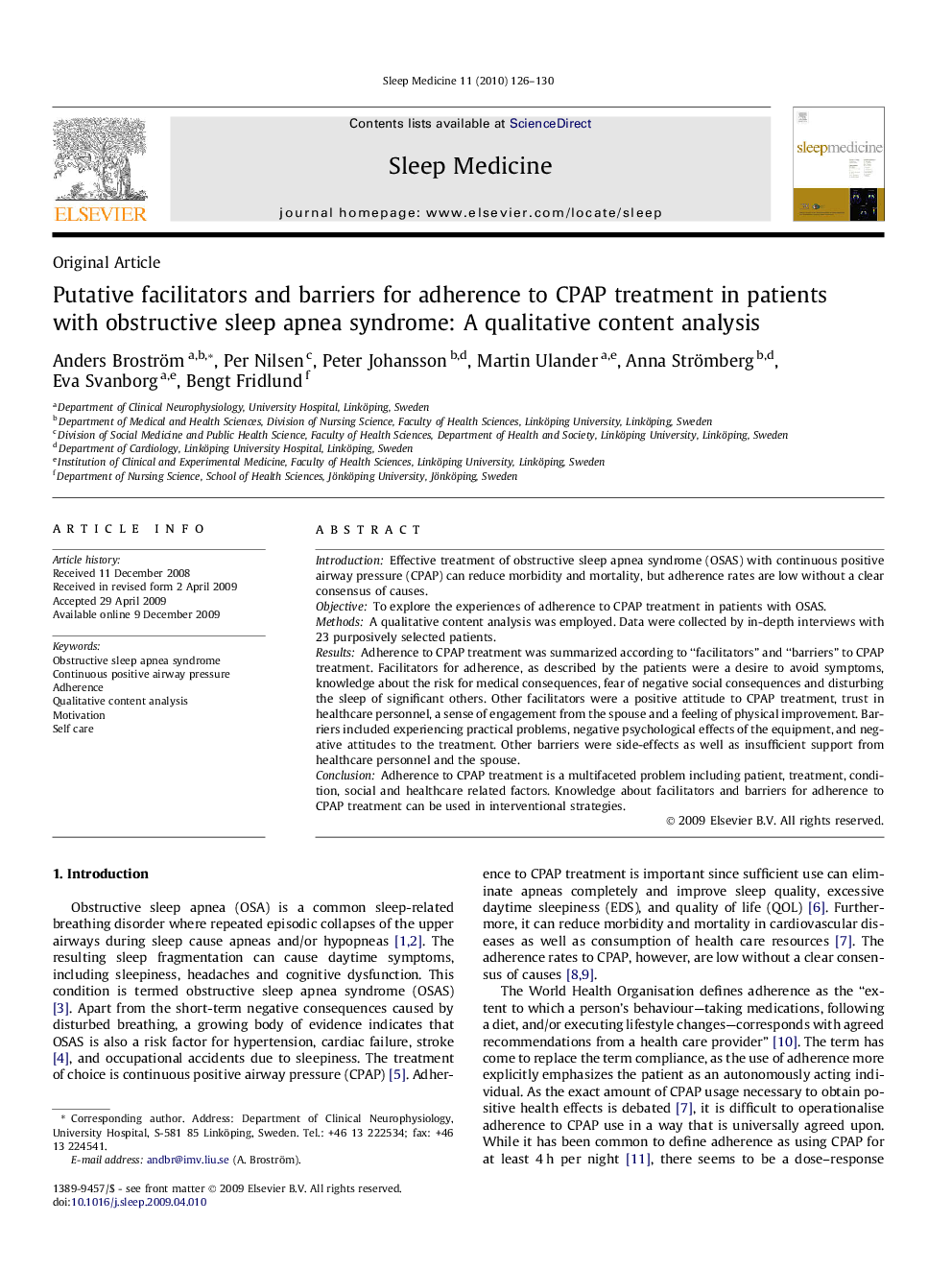| Article ID | Journal | Published Year | Pages | File Type |
|---|---|---|---|---|
| 3176467 | Sleep Medicine | 2010 | 5 Pages |
IntroductionEffective treatment of obstructive sleep apnea syndrome (OSAS) with continuous positive airway pressure (CPAP) can reduce morbidity and mortality, but adherence rates are low without a clear consensus of causes.ObjectiveTo explore the experiences of adherence to CPAP treatment in patients with OSAS.MethodsA qualitative content analysis was employed. Data were collected by in-depth interviews with 23 purposively selected patients.ResultsAdherence to CPAP treatment was summarized according to “facilitators” and “barriers” to CPAP treatment. Facilitators for adherence, as described by the patients were a desire to avoid symptoms, knowledge about the risk for medical consequences, fear of negative social consequences and disturbing the sleep of significant others. Other facilitators were a positive attitude to CPAP treatment, trust in healthcare personnel, a sense of engagement from the spouse and a feeling of physical improvement. Barriers included experiencing practical problems, negative psychological effects of the equipment, and negative attitudes to the treatment. Other barriers were side-effects as well as insufficient support from healthcare personnel and the spouse.ConclusionAdherence to CPAP treatment is a multifaceted problem including patient, treatment, condition, social and healthcare related factors. Knowledge about facilitators and barriers for adherence to CPAP treatment can be used in interventional strategies.
